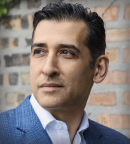July marks a significant transition for many professionals, particularly those beginning structured training programs on July 1. This article is designed to support new and current hematology-oncology fellows and trainees in making the most of their training experience. Although not all suggestions provided will apply universally, the tips offered here are meant to be adapted and personalized to fit your unique circumstances and program.
Acknowledge the Stark Transition
Starting a hematology-oncology fellowship may feel overwhelming, especially the first 6 months, as these days are usually the most intense periods of learning in medical training. Many internal medicine programs offer limited exposure to oncology, so diving into the complexities of cancer care—from understanding various malignancies, staging, and prognoses to memorizing chemotherapy drugs, their side effects, dose modifications based on cytopenias and liver or kidney function—is like learning a new language. These fundamentals are the ABCs of practicing in this field.

Jasmine Kamboj, MD, FASCO

Noha Soror, MD, MSc

Chadi Nabhan, MD, MBA, FACP
In addition to the academic demands, many fellows face the personal challenge of relocating to a new city, joining a new program, and building fresh social and professional networks. If you’re not staying at the institution where you trained, the transition can be especially disorienting.
It’s vital that both programs and trainees recognize this adjustment period. Programs should make thoughtful arrangements to support new fellows to ensure smooth onboarding, quality patient care, and trainee well-being. Knowing what resources are available to fellows and how to ask for help can make a significant difference.
Learn the Art of Oncology, Not Just the Science
In today’s world, where clinical guidelines are instantly accessible and AI tools can provide up-to-date information, looking up chemotherapy templates and placing chemotherapy orders may be straightforward tasks. However, the true art of oncology lies not just in managing the treatment, but in caring for the human being receiving it.
Every person is a human being first who happens to have cancer not a “cancer patient” who also happens to be human. This distinction matters! Everyone deserves compassionate, dignified care, regardless of prognosis. Building rapport through genuine eye contact, taking time to connect, speaking in clear and empathetic language, and truly listening are foundational to meaningful patient relationships.
The true art of oncology lies not just in managing the treatment, but in caring for the human being receiving it.— JASMINE KAMBOJ, MD, FASCO; NOHA SOROR, MD, MSc; AND CHADI NABHAN, MD, MBA, FACP
Tweet this quote
It is especially important to approach conversations about prognosis, goals of care, and hospice thoughtfully and humanely. Tools such as the ECOG Performance Status Scale can guide treatment decisions and help assess functional status accurately.
Also, remember that cancer affects not only patients but their entire support system (spouses, children, and parents). Acknowledge caregivers during clinic visits. Their observations may reveal subtle but significant changes patients may overlook. They also play a vital role in helping patients make informed decisions and come to terms with their illness. Their voices and perspectives matter.
In addition, it is critically important not only to know which antineoplastic agent to choose and when, but also to develop a deep understanding of treatment side effects. Equally essential is recognizing when to hold or reduce the dose and when treatment may no longer be appropriate. Overtreatment can be harmful, especially when patients’ comorbidities, performance status, or personal preferences suggest a less-aggressive approach may be better aligned with their goals.
Furthermore, understand the pivotal role of integrating palliative care in oncology from the very start of cancer treatment, not only for the end stages. Evidence shows that early involvement of palliative care may improve survival; it is not optional but a fundamental component of high-quality cancer care. Thankfully, just as cancer therapies have advanced, so, too, has our ability to manage symptoms effectively. ASCO and the National Comprehensive Cancer Network (NCCN) provide excellent guidelines for supportive care that should be routinely used.
Review Patients’ Charts Ahead of Time
In oncology, how well you prepare your patients’ charts in advance can make or break your day. Taking time to review and organize information ahead of clinic not only streamlines your workflow, but also significantly reduces stress during the actual visit. When possible, coordinate with other disciplines beforehand as well. Patients deeply appreciate when it’s clear you’ve done your homework! It often brings a visible sense of relief and trust when they realize you are ready with most, if not all, of the answers.
Hone Your Skills
Mastering the subject matter is essential for success in any field, and oncology is no exception. Trusted resources such as the NCCN Clinical Practice Guidelines in Oncology (NCCN Guidelines®), UpToDate, and ASCO guidelines are invaluable throughout both training and clinical practice. Board review courses, such as those offered by MD Anderson and Baylor College of Medicine, provide a solid foundation in the diagnosis and management of various malignancies. Such courses are also a great resource to build your knowledge for the in-training exams and to prepare for the boards.
Building strong relationships both within your fellowship program and beyond is essential. Every fellow should have at least one friend in every department.— JASMINE KAMBOJ, MD, FASCO; NOHA SOROR, MD, MSc; AND CHADI NABHAN, MD, MBA, FACP
Tweet this quote
One of the most effective ways to deepen your oncology knowledge is through case-based learning. Reading about relevant topics, staying current with guideline updates and new clinical trial results, and applying this information in real time are all excellent strategies. Writing comprehensive notes not only helps you understand patients better but also reinforces your knowledge of oncology concepts.
Take every opportunity to perform procedures. Don’t hesitate to seek guidance from senior fellows or attendings when needed; learning by doing, with support, is key to growing your skill set and confidence.
Take full advantage of your program’s educational offerings. Interactive discussions and real-time questions often leave a more lasting impression than reading an article alone. These experiences may significantly deepen your understanding and retention of complex topics.
Expose Yourself to Diverse Settings
Many fellowship programs provide opportunities to train across various settings—such as county hospitals, VA medical centers, or through partnerships with private practices. This diversity of clinical exposure is incredibly valuable, as it allows you to encounter a wide range of practice environments and disease presentations. It also offers insight that may help to shape your future career decisions.
Observing different faculty members with unique teaching and care styles gives you the chance to identify which approaches resonate most with you. If your program offers rotations in local clinics, community settings, or rural practices, take full advantage of them. These experiences may broaden your perspective and better prepare you for the range of career paths available in hematology-oncology.
Develop Relationships and Network
Building strong relationships both within your fellowship program and beyond is essential. Every fellow should have at least one friend in every department. These connections can be incredibly helpful when you need something expedited, such as a port placement, an interventional radiology procedure, or urgent imaging. This advice was shared by Dr. Benjamin Musher of Baylor College of Medicine.
Don’t limit your networking to your home institution. Conferences offer excellent opportunities to expand your professional circle. For example, ASCO puts significant effort into fostering connection through informal gatherings such as the “Women in Oncology” lounge or the “Trainee/Early Career” lounge. Be intentional about setting aside dedicated time during conferences for networking. Although virtual meetups and Zoom meetings have become common, nothing quite matches the value of face-to-face interactions. Additionally, platforms such as ASCO’s myconnection.asco.org offer various groups and communities, where you can begin networking with ease even from afar.
Reflect on Your Interests, Create a Plan, and Build Your Village
Once you’ve settled in during the early phase, take time to explore and clarify your interests and passions. Do you see yourself thriving more in a community setting or in academia? Are you aiming for a partnership track, or do you envision starting your own group? Is there a particular tumor type that captures your interest more than others?
A valuable approach shared by Dr. Sumanta (Monty) Pal, who has been a phenomenal mentor to so many, is to create focused plans for the short term (1 year), mid-term (5 years), and long term (10 years) based on your goals and interests. Having a clear plan helps you take actionable steps toward making it a reality.
Additionally, consider who could serve as the right mentors, sponsors, coaches, or accountability partners aligned with your interests. These individuals can accelerate your progress by providing guidance and support. It is important to reflect on your goals and intentionally build this network—your “supportive village.”
Did You Know There Is a ‘Fellow’ in Every FASCO Point?
You can earn FASCO points starting in fellowship and hence start your journey to FASCO status. It might sound cliché, but this journey is way more rewarding than the destination. You will engage in meaningful work and foster relationships that will turn out to be lifelong friendships.
Hence, volunteering for institutions such as ASCO, the American Society of Hematology (ASH), the Association of Cancer Care Centers (ACCC), the American Medical Association (AMA), and state societies is something we would highly recommend. The volunteering opportunities may not always be in line with your expectations or goals, but pursuing them will bring joy and professional satisfaction in ways you may not fully understand in the beginning. Start your journey with at least one of these organizations during your training.
Tips for Fellows: Lessons Learned and Shared
- Acknowledge the stark transition and be intentional and proactive about your well-being
- Pay attention to the humane part of caring for your patients and their families
- Manage antineoplastic treatment (do not simply write the order), as it is an ongoing, evolving process
- Learn about supportive care drugs and incorporate palliative care early
- Invest time in your patients ahead of clinic visits
- Learn your subject, write good notes, practice procedures, and take advantage of your program’s educational offerings
- Expose yourself to diverse practice settings
- Network within and beyond your immediate circle or organization
- Reflect on your interests and create a plan
- Engage with national and/or state societies
- Be discerning and protective of your time
- Remain curious and learn from “everyone” around you
Be Your Own Advocate and Protect Your Time
Be mostly the yes person for opportunities offered for leadership and career development, but also be discerning and say no to things that might bring just empty titles and no professional satisfaction. When you say no to a certain thing, it means you carve time for yourself or your family, create this opportunity for colleagues or peers, and intentionally focus on your well-being and prevent burnout.
Engage and Learn the Business of Oncology
Be as engaged as possible with your program, practice, or community locally. It will give you insights into challenges and situations you would otherwise never know while taking care of clinical responsibilities. Be the leader you are. Be curious. Learn from your administrators, physicians, advanced practice providers, colleagues, and leaders. For trainees interested in the business side of oncology and practice ownership, resources such as Oncology College (OncologyCollege.com) offer valuable learning opportunities.
Closing Thoughts
We thank our faculty, mentors, colleagues, and friends for being generous and gracious in sharing several of the listed tips (see sidebar). We are who we are because of our collective wisdom! Finally, our patients are our biggest teachers, and we are so grateful to them for contributing profoundly to our growth personally and professionally.
DISCLOSURE: Drs. Kamboj, Soror, and Nabhan reported no conflicts of interest.
Dr. Kamboj is a medical oncologist and hematologist at the Mayo Clinic Health System, Northfield, Minnesota. She leads ASCO’s Community of Practice Policy, serves on the Minnesota Society of Clinical Oncology Board, and hosts the OncoDaily podcast, Empowering Oncologists. Dr. Soror is a hematologist/oncologist at Texas Oncology, and her clinical and research focus includes thoracic malignancies, cellular therapy, and early-phase drug development. She is passionate about mentorship and advocacy, currently serving on the ASCO International Medical Graduates Community of Practice–Mentorship Committee, the ASCO Health Policy Community of Practice, and the ASCO Trainee and Early Career Advisory Group. Dr. Nabhan is Chief Medical Officer and Head of Strategy at Ryght, an AI company, and a former hematology/oncology fellowship program director.

